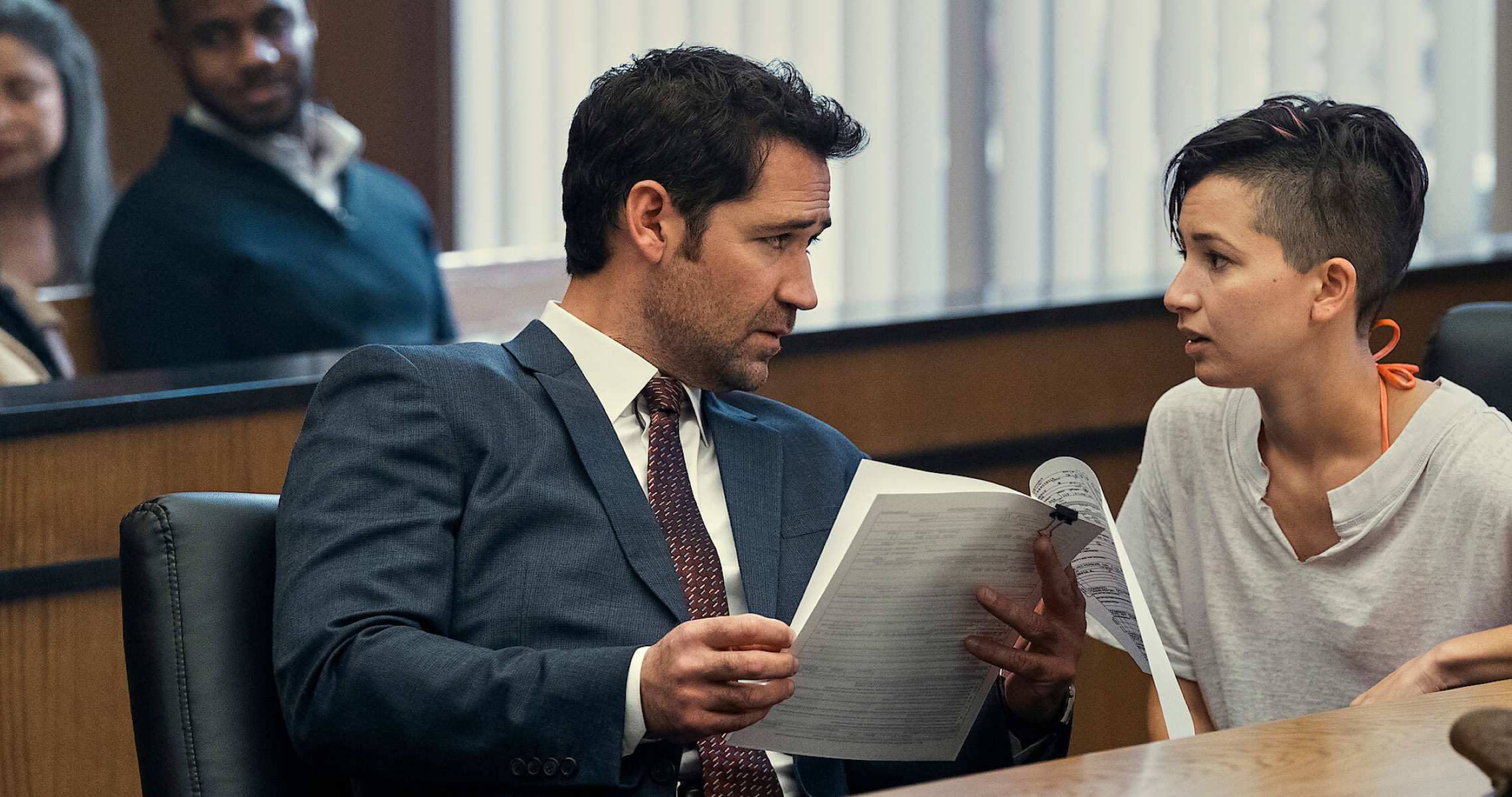Home>Law and Legal Advice>5 Signs Your Lawyer Is Selling You Out


Law and Legal Advice
5 Signs Your Lawyer Is Selling You Out
Published: January 19, 2024
Discover the top 5 signs that indicate your lawyer may be betraying your trust. Get expert law and legal advice to protect your rights and interests.
(Many of the links in this article redirect to a specific reviewed product. Your purchase of these products through affiliate links helps to generate commission for Regretless.com, at no extra cost. Learn more)
Table of Contents
Introduction
When you find yourself in need of legal representation, you place a tremendous amount of trust in your lawyer. Whether it's a personal injury case, a business dispute, or a criminal matter, your lawyer is your advocate, your confidant, and your guide through the complexities of the legal system. However, there are instances when this trust is compromised, and your lawyer may not be acting in your best interests. It's crucial to be aware of the signs that your lawyer might be selling you out, as recognizing these signs early can prevent potentially devastating consequences.
In this article, we will explore five key indicators that may suggest your lawyer is not prioritizing your well-being and legal success. By understanding these signs, you can take proactive measures to protect your rights and seek the legal representation you deserve. Let's delve into these warning signals and empower you to navigate the legal landscape with confidence and clarity.
Read more: 5 Clear Signs Your Transmission Is Slipping
Sign 1: Lack of Communication
Effective communication is the cornerstone of a successful lawyer-client relationship. When your lawyer exhibits a lack of communication, it can be a red flag indicating potential problems. One of the most common grievances clients have against their attorneys is the failure to maintain open and consistent communication.
A lawyer who is selling you out may be unresponsive to your calls, emails, or requests for updates on your case. They may not keep you informed about important developments, court dates, or the progress of negotiations. This lack of communication can leave you feeling anxious, uninformed, and uncertain about the status of your legal matter.
Furthermore, a lawyer who avoids meaningful communication may not be seeking your input or considering your preferences when making critical decisions. This disconnect can lead to misunderstandings, misaligned expectations, and a sense of being sidelined in your own legal proceedings.
Additionally, a lawyer who fails to communicate effectively may not be adequately preparing you for important legal proceedings or providing you with the necessary information to make informed choices about your case. This lack of transparency can leave you feeling disempowered and unsure about the direction of your legal representation.
In essence, a lack of communication from your lawyer can signify a breach of trust and a disregard for your needs and concerns. It is essential to address this issue promptly and assertively to ensure that you are receiving the attention and information you deserve from your legal representation.
If you find yourself experiencing a lack of communication from your lawyer, it may be time to have a candid conversation with them about your expectations regarding communication and the level of involvement you desire in your case. If the issue persists, it may be necessary to seek alternative legal representation that values and prioritizes open and transparent communication.
Remember, effective communication is fundamental to a successful attorney-client relationship, and it is imperative to address any deficiencies in this area to safeguard your legal rights and interests.
Sign 2: Ignoring Your Best Interests
Your lawyer is entrusted with the responsibility of advocating for your best interests within the bounds of the law. However, if you perceive that your lawyer is neglecting or disregarding your well-being and priorities, it could be a clear indication that they are not acting in your best interests.
One of the critical roles of a lawyer is to comprehensively understand your objectives, concerns, and desired outcomes. This understanding forms the foundation upon which legal strategies and decisions are formulated. If your lawyer appears indifferent to your goals and fails to align their actions with your best interests, it can be deeply concerning.
Furthermore, a lawyer who prioritizes their own agenda over your well-being may steer you towards settlements or courses of action that are more advantageous to them, rather than being in your best interests. This conflict of interest can significantly compromise the integrity of your legal representation and erode the trust you have placed in your lawyer.
Moreover, if your lawyer consistently dismisses your input, fails to consider your preferences, or makes decisions without consulting you, it may signal a lack of commitment to safeguarding your best interests. Your lawyer should actively involve you in the decision-making process and ensure that your voice is heard and respected throughout the legal proceedings.
Additionally, if you suspect that your lawyer is pressuring you to accept unfavorable terms or coercing you into actions that do not align with your objectives, it is crucial to reassess the dynamics of your attorney-client relationship. Your lawyer should always prioritize your well-being and legal objectives, and any deviation from this fundamental principle warrants careful scrutiny and proactive measures.
In essence, when your lawyer disregards your best interests, it undermines the essence of legal representation and jeopardizes the outcome of your case. As a client, it is imperative to remain vigilant and assertive in advocating for your rights and objectives, and to seek legal counsel that is unwaveringly committed to advancing your best interests.
If you find yourself in a situation where your lawyer is consistently ignoring your best interests, it may be necessary to seek alternative legal representation that is dedicated to prioritizing your well-being and achieving outcomes that align with your objectives. Your legal representation should always be aligned with your best interests, and any deviation from this principle demands swift and decisive action to protect your rights and legal success.
Sign 3: Lack of Transparency
Transparency is a cornerstone of ethical legal practice, and when your lawyer operates in a manner that lacks transparency, it can raise significant concerns about the integrity of your attorney-client relationship. A lack of transparency can manifest in various forms, each of which can erode trust and compromise the effectiveness of your legal representation.
One of the primary indicators of a lack of transparency is when your lawyer withholds essential information pertaining to your case. This can include crucial details about legal strategies, potential risks, and the progress of negotiations or litigation. When you are kept in the dark about significant developments and pertinent aspects of your case, it undermines your ability to make informed decisions and actively participate in the legal process.
Furthermore, a lack of transparency may also manifest in the form of unclear or ambiguous billing practices. Your lawyer has a responsibility to provide transparent and comprehensible billing statements, detailing the services rendered, associated costs, and any additional expenses incurred. If you encounter challenges in understanding your legal fees or if your lawyer is evasive about billing details, it can indicate a lack of transparency and raise concerns about potential financial exploitation.
Additionally, a transparent lawyer should be forthcoming about potential conflicts of interest that may impact your case. If your lawyer fails to disclose any personal or professional relationships that could compromise their impartiality or loyalty to your best interests, it represents a significant breach of transparency and ethical conduct.
Moreover, a lack of transparency can also be observed in the absence of clear and open communication regarding the potential outcomes and risks associated with your legal matter. Your lawyer should candidly discuss the strengths and weaknesses of your case, potential challenges, and the range of possible outcomes. Without this transparency, you may find yourself ill-prepared for the realities of your legal situation and unable to make well-informed decisions about your case.
In essence, transparency is fundamental to a trusting and effective lawyer-client relationship. If you perceive a lack of transparency in your interactions with your lawyer, it is essential to address these concerns directly and seek clarity on all aspects of your legal representation. Open and transparent communication, clear billing practices, and proactive disclosure of potential conflicts of interest are crucial components of a transparent attorney-client relationship.
If you encounter persistent challenges in obtaining transparent and forthcoming communication from your lawyer, it may be necessary to consider alternative legal representation that prioritizes transparency and operates with the highest ethical standards. Your legal representation should be characterized by transparency, honesty, and a commitment to keeping you informed and empowered throughout the legal process.
Sign 4: Working Against Your Goals
Your legal representation should be aligned with your objectives and aspirations, with your lawyer diligently working towards achieving the outcomes you desire. However, if you perceive that your lawyer is actively working against your goals or pursuing strategies that contradict your best interests, it raises significant concerns about the integrity of your attorney-client relationship.
One of the most glaring signs that your lawyer may be working against your goals is when their actions and decisions consistently undermine the outcomes you seek. This could manifest in various ways, such as pressuring you to accept settlements that do not align with your objectives, disregarding your preferences when formulating legal strategies, or failing to pursue avenues that are crucial to achieving your desired outcomes.
Furthermore, if your lawyer demonstrates a lack of commitment to understanding and advancing your goals, it can lead to a profound disconnect in your legal representation. Your lawyer should actively engage with you to comprehend your objectives, concerns, and priorities, and tailor their legal approach to align with your overarching goals. Failure to do so can result in a significant misalignment between your expectations and the actions of your legal counsel.
Moreover, if you suspect that your lawyer is prioritizing their own interests or financial gains over your objectives, it is a clear indication that they may be working against your goals. Your lawyer has a fiduciary duty to prioritize your well-being and legal objectives above all else, and any deviation from this fundamental obligation is unacceptable.
Additionally, working against your goals can also encompass instances where your lawyer fails to pursue viable legal options or compromises the thoroughness of their representation, ultimately impeding the realization of your desired outcomes. Your lawyer should be proactive in exploring all avenues that align with your goals and leveraging their expertise to maximize the likelihood of achieving favorable results.
In essence, when your lawyer works against your goals, it undermines the essence of legal representation and jeopardizes the outcome of your case. As a client, it is imperative to remain vigilant and assertive in advocating for your rights and objectives, and to seek legal counsel that is unwaveringly committed to advancing your best interests.
If you find yourself in a situation where your lawyer consistently works against your goals, it may be necessary to seek alternative legal representation that is dedicated to prioritizing your well-being and achieving outcomes that align with your objectives. Your legal representation should always be aligned with your best interests, and any deviation from this principle demands swift and decisive action to protect your rights and legal success.
Sign 5: Conflicts of Interest
Conflicts of interest can significantly undermine the integrity of the attorney-client relationship and compromise the effective representation of your legal interests. A conflict of interest arises when your lawyer's personal, financial, or professional affiliations conflict with their ability to prioritize your best interests and provide impartial counsel. Identifying and addressing conflicts of interest is paramount in safeguarding the fairness and integrity of your legal representation.
One of the most prevalent forms of conflicts of interest occurs when your lawyer represents opposing parties in related legal matters. This scenario can create a fundamental conflict between the duty of loyalty owed to each client, potentially compromising the attorney's ability to provide undivided advocacy for your legal objectives. Additionally, if your lawyer has personal or financial ties to individuals or entities involved in your case, it can lead to a conflict of interest that jeopardizes the impartiality and fairness of your legal representation.
Moreover, conflicts of interest can also emerge when your lawyer's professional obligations clash with their personal interests or relationships. For example, if your lawyer has a familial or business relationship with individuals or entities adverse to your legal position, it can create a conflict that undermines the attorney's ability to prioritize your best interests without bias or partiality.
Furthermore, financial conflicts of interest, where your lawyer stands to gain financially from the outcome of your case in a manner that compromises their objectivity, can significantly erode the trust and fairness of your legal representation. Whether through referral fees, undisclosed financial arrangements, or other monetary incentives, such conflicts can lead to a breach of the fiduciary duty owed to you as a client.
Identifying and addressing conflicts of interest is essential to preserving the integrity and fairness of your legal representation. If you suspect that your lawyer may be operating under a conflict of interest, it is crucial to raise these concerns directly with your lawyer and seek clarification on any affiliations or relationships that may compromise their ability to prioritize your best interests. If the conflict remains unresolved or if you are dissatisfied with the responses provided, it may be necessary to seek alternative legal representation that is free from any conflicts that could impair the fairness and effectiveness of your legal advocacy.
In summary, conflicts of interest pose a significant threat to the integrity of the attorney-client relationship and the fairness of your legal representation. Vigilance in identifying and addressing potential conflicts of interest is essential to upholding the ethical standards and trust that form the bedrock of effective legal counsel.
Conclusion
In conclusion, recognizing the signs that your lawyer may be selling you out is critical in safeguarding your legal rights and ensuring that your best interests are prioritized throughout the legal process. The five key indicators discussed in this article – lack of communication, ignoring your best interests, lack of transparency, working against your goals, and conflicts of interest – serve as crucial warning signals that demand attention and proactive measures to address potential breaches in the attorney-client relationship.
When faced with a lack of communication from your lawyer, it is essential to assertively address this issue and seek the level of engagement and transparency you deserve. Effective communication forms the bedrock of a successful lawyer-client relationship, and any deficiencies in this area should be promptly remedied to ensure that you are informed, empowered, and actively involved in your legal proceedings.
Moreover, the importance of ensuring that your lawyer consistently prioritizes your best interests cannot be overstated. Your legal representation should be unwaveringly aligned with your objectives, and any indication that your lawyer is disregarding or undermining your goals necessitates immediate attention and, if necessary, the pursuit of alternative legal representation that is committed to advancing your well-being.
Transparency is fundamental to ethical legal practice, and a lack of transparency in your interactions with your lawyer can raise significant concerns. Clear and open communication, transparent billing practices, and proactive disclosure of potential conflicts of interest are essential components of a trusting and effective attorney-client relationship. If transparency is compromised, it is imperative to seek clarity and, if necessary, seek legal counsel that operates with the highest ethical standards.
Furthermore, working against your goals and conflicts of interest represent clear breaches in the duty owed to you as a client. Vigilance in identifying and addressing these issues is crucial to preserving the fairness and integrity of your legal representation, and taking decisive action to address these concerns is paramount in safeguarding your legal rights and achieving favorable outcomes.
In essence, recognizing these signs and taking proactive steps to address them is pivotal in ensuring that your lawyer is unwaveringly committed to advocating for your best interests and upholding the highest ethical standards. Your legal representation should be characterized by open communication, a steadfast commitment to your objectives, transparency, and the absence of conflicts of interest. By remaining vigilant and proactive, you can navigate the legal landscape with confidence, clarity, and the assurance that your legal rights and well-being are safeguarded.














